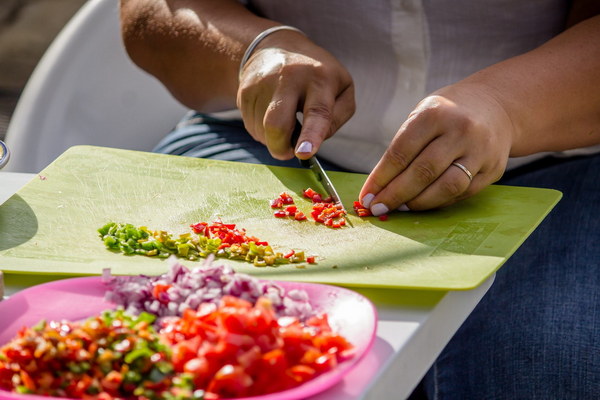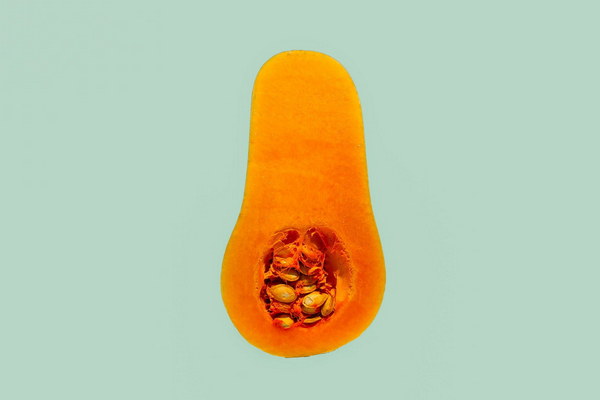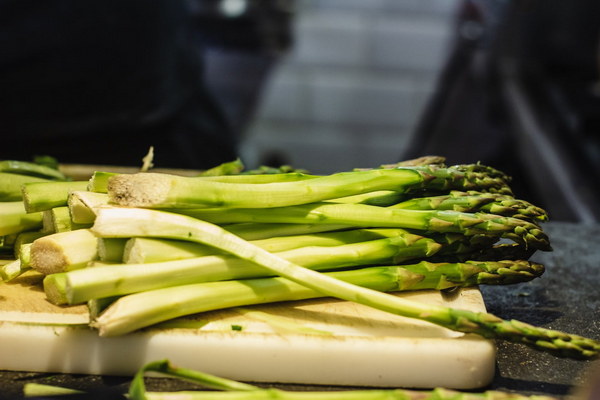Nourishing the Stomach and Boosting Qi A Guide to TCM Herbs for Pregnant Women
As pregnancy is a time of significant physical and hormonal changes, it's important for expectant mothers to maintain their health and well-being. Traditional Chinese Medicine (TCM) offers a variety of natural remedies to support a healthy pregnancy, including herbs that can help nourish the stomach and boost Qi, or vital energy. Here's a guide on how pregnant women can safely incorporate these TCM herbs into their diet.
Understanding the Importance of Qi and Stomach Nourishment During Pregnancy
In TCM, the concept of Qi is central to the body's balance and health. During pregnancy, the mother's Qi is vital for supporting the development of the fetus. A weakened Qi can lead to various complications, including fatigue, weakness, and poor digestion.
The stomach is considered the sea of Qi in TCM, as it is responsible for transforming food into energy. A healthy stomach ensures that nutrients are properly absorbed, which is crucial during pregnancy when both the mother and the fetus require additional nourishment.
Herbs to Boost Qi and Nourish the Stomach
Several TCM herbs are known for their ability to boost Qi and nourish the stomach. Here are some of the most commonly used:
1. Ginseng (Ren Shen): Known for its energy-boosting properties, ginseng is a popular choice for pregnant women. It helps to enhance overall vitality and improve digestion.
2. Astragalus (Huang Qi): This herb strengthens the immune system and supports the body's natural defenses, making it an excellent choice for pregnant women looking to boost their Qi.
3. Codonopsis (Dang Shen): Similar to ginseng, codonopsis is used to replenish Qi and improve digestion, making it suitable for pregnant women experiencing fatigue or digestive issues.
4. Licorice (Gan Cao): Known for its sweet and soothing properties, licorice helps to balance the other herbs and can alleviate nausea, a common symptom of pregnancy.
5. Chuan Xiong (Ligusticum Chuanxiong): This herb is used to stimulate circulation and alleviate pain, which can be beneficial for pregnant women with leg cramps or bloating.

How to Incorporate TCM Herbs into Your Diet
Before starting any herbal regimen, it's crucial to consult with a qualified TCM practitioner or a healthcare provider, especially since some herbs can interact with pregnancy-related medications or pose risks to the fetus.
Here are some ways to safely incorporate TCM herbs into your diet:
- Herbal Teas: Brew a tea using herbs like ginseng, codonopsis, and licorice. Steep the herbs in hot water for 10-15 minutes before consuming. Drink these teas 1-2 times a day, but avoid excessive consumption.
- Herbal Poultices: Some herbs can be made into poultices and applied topically to alleviate muscle aches or cramps. Always consult with a healthcare provider before using this method.
- Cooking with Herbs: Add TCM herbs to your meals, such as ginseng or codonopsis, to enhance flavor and health benefits. These herbs can be used in soups, stews, or even baked into breads or pastries.
- Supplements: Some TCM herbs are available in supplement form. However, it's important to ensure that these supplements are safe and have been formulated for pregnant women.
Conclusion
Incorporating TCM herbs into a pregnant woman's diet can be a safe and effective way to boost Qi and nourish the stomach. However, it's essential to consult with a healthcare provider to ensure the herbs chosen are appropriate for the individual's specific needs and to avoid any potential risks. By doing so, expectant mothers can support their health and the health of their developing baby with natural, time-honored remedies.









